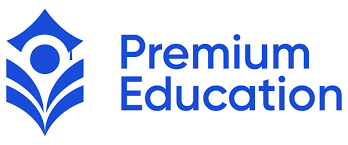While many families assume top-tier education requires Ivy League tuition, a growing number of high-achieving students are discovering an exceptional alternative: honors colleges at public universities. These programs combine the resources of large research institutions with the intimate learning environment typically found at elite private colleges – often at a fraction of the cost.
Why Honors Colleges Deserve Your Attention
Premium Education, Public School Pricing

- Small classes: Average 15-20 students vs. 300+ lecture halls
- Priority access: First pick of courses, professors, and research opportunities
- Enhanced curriculum: Specialized seminars and interdisciplinary courses
- Thesis requirement: 89% of programs include capstone projects that impress grad schools
Real example: At the University of South Carolina’s Honors College, students can take courses like “The Physics of Superheroes” with Nobel laureates while paying in-state tuition.
Admissions: Selective But Attainable
| Criteria | Typical State School | Honors College | Ivy League |
| Average GPA | 3.5 | 3.8+ | 4.0+ |
| Median SAT | 1200 | 1350+ | 1500+ |
| Annual Cost | $15-25K | $15-25K | $80K+ |
The sweet spot? Honors programs offer 70% of Ivy League’s academic benefits for 30% of the cost.
Standout Programs Across the Country
1. Barrett Honors College (Arizona State)
- Signature perk: $12,000 study abroad stipend
- Notable: 100% of business honors grads land jobs by commencement
2. Schreyer Honors College (Penn State)
- Research focus: $5,000 grants for undergraduate projects
- Outcomes: 40% higher medical school acceptance rate vs. national average
3. University Honors Program (Alabama)
- Financial appeal: Automatic full-tuition scholarships for 32+ ACT scores
- Facilities: Private honors-only dining and study spaces
The Tradeoffs to Consider
Potential Challenges
- Accelerated pacing: Honors courses often move 30% faster
- Social dynamics: Some students report “honors bubble” isolation
- STEM limitations: Engineering majors may struggle with extra humanities requirements
Who Thrives in Honors?
- Best fit: Curious, self-motivated learners who want professor access
- Less ideal: Students who prioritize Greek life or Division I sports culture
By the Numbers: Honors Outcomes
- Salary boost: Honors grads earn 8,000−8,000−15,000 more starting salary
- Grad school edge: 3x higher acceptance to top-20 programs
- Completion rates: 92% graduate in 4 years vs. 65% university-wide
The Bottom Line
For high-achieving students, honors colleges represent one of higher education’s most undervalued opportunities. As the cost of private colleges continues soaring, these programs deliver comparable intellectual rigor, mentorship, and outcomes while keeping debt manageable.











